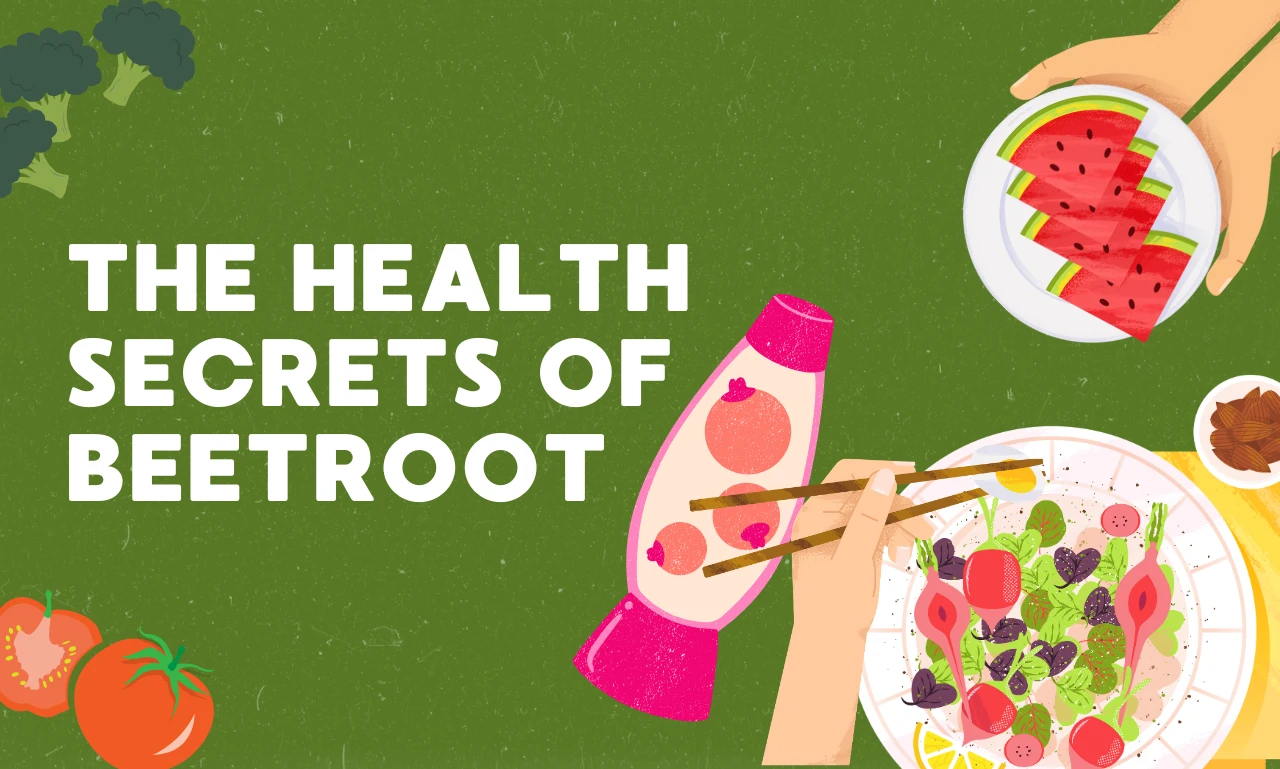Beetroot, often referred to as the “crimson powerhouse,” is a nutritional marvel packed with essential vitamins, minerals, and powerful antioxidants. This vibrant root vegetable has gained immense popularity among health enthusiasts, athletes, and nutritionists due to its remarkable health benefits. From improving cardiovascular health to enhancing athletic performance, beetroot is a superfood that deserves a spot in your daily diet.

Nutritional Profile of Beetroot
Beetroot is a rich source of essential nutrients that contribute to overall well-being. It contains:
- Vitamins: Vitamin C, B6, and folate, which aid in immune function and cell metabolism.
- Minerals: Potassium, magnesium, iron, and manganese, essential for nerve function, muscle contractions, and oxygen transport.
- Antioxidants: Betalains and polyphenols, which help fight oxidative stress and inflammation.
- Dietary Fiber: Supports gut health and digestion.
Cardiovascular Benefits: A Heart-Healthy Superfood
One of beetroot’s most significant health advantages is its ability to promote heart health. It is naturally rich in nitrates, which the body converts into nitric oxide. This compound helps:
- Lower blood pressure: Studies show that beetroot juice consumption reduces hypertension by improving blood vessel function.
- Enhance circulation: Nitric oxide widens blood vessels, leading to better oxygen and nutrient transport.
- Reduce cholesterol: The fiber and antioxidants in beetroot help lower bad cholesterol (LDL) levels, reducing the risk of heart disease.
Athletic Performance and Endurance Boost
Athletes worldwide are incorporating beetroot into their diets due to its ability to enhance physical performance. The high nitrate content improves oxygen efficiency, leading to:
- Increased stamina and endurance during workouts.
- Reduced muscle fatigue and improved post-exercise recovery.
- Enhanced oxygen uptake, making physical activity less exhausting.
Detoxification and Liver Health
Beetroot acts as a natural detoxifier, aiding liver function by:
- Stimulating bile production, which helps break down fats and remove toxins.
- Containing betaine, which protects liver cells from damage and reduces fatty liver disease risk.
- Boosting antioxidant activity, helping the liver neutralize harmful substances.
Anti-Inflammatory and Antioxidant Properties
Chronic inflammation is linked to numerous health issues, including arthritis, diabetes, and cancer. Beetroot’s betalains and polyphenols help:
- Reduce oxidative stress by neutralizing free radicals.
- Lower inflammation markers, alleviating symptoms of inflammatory conditions.
- Support immune function, strengthening the body’s defense system.
How to Incorporate Beetroot into Your Diet
Beetroot is incredibly versatile and can be enjoyed in various forms:
- Juices and smoothies: Blend with fruits like apples or berries for a refreshing drink.
- Salads: Add roasted or grated beetroot to salads for a nutrient boost.
- Soups: Try traditional beetroot soup (borscht) for a warm and comforting dish.
- Snacks: Enjoy beetroot chips or hummus as a healthy alternative.
Conclusion
Beetroot is a true superfood that offers a wide range of health benefits, from improving cardiovascular function to enhancing athletic performance and supporting detoxification. Its rich nutritional profile, anti-inflammatory properties, and versatility make it an excellent addition to any diet. Start incorporating beetroot into your meals today and experience the transformative effects of this crimson powerhouse!